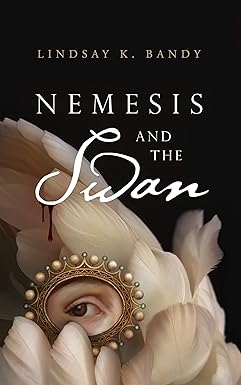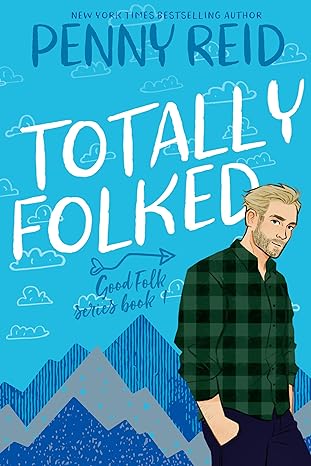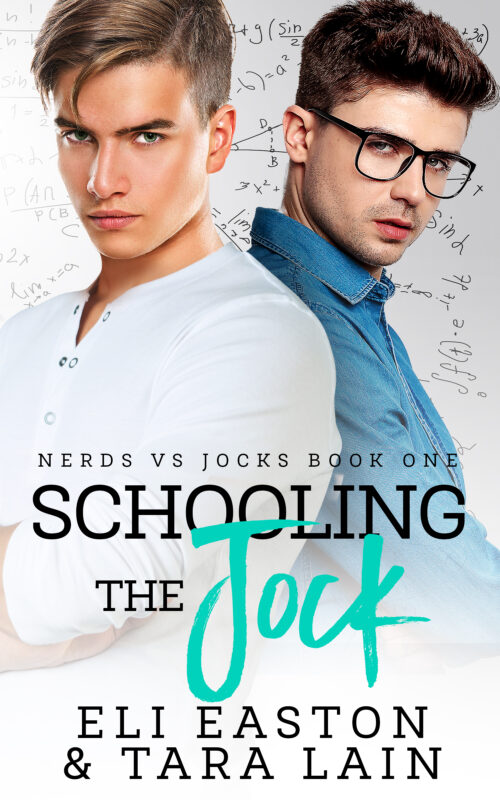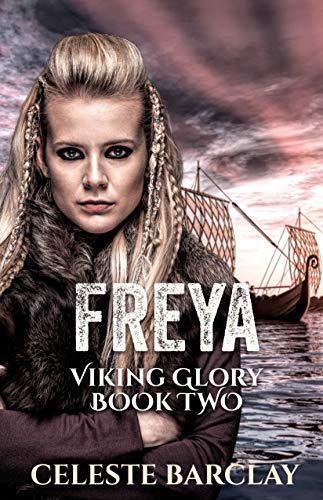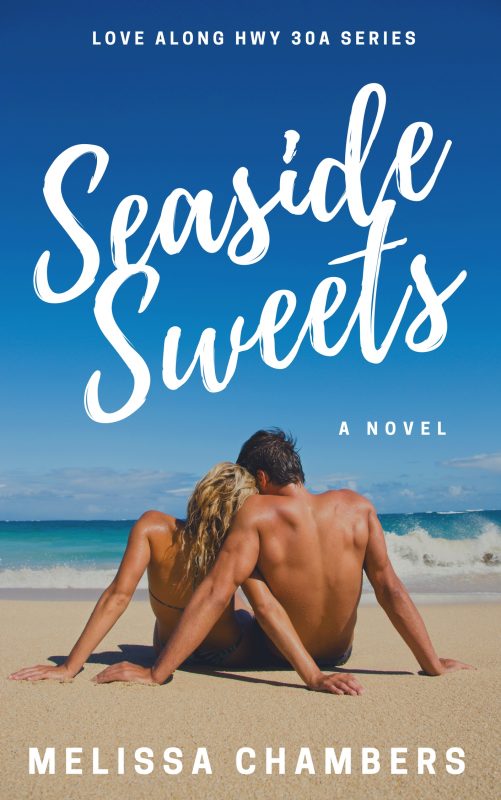Drafts by Jenny Jensen, Editor @A_SliceofOrange
October 19, 2017 by Jenny Jensen in category On writing . . . by Jenny Jensen tagged as editing, Editors, first drafts, Quotes Drafts
Drafts
I love quotes. I collect them, especially quotes about writing from writers I particularly respect. Since I work with writers of all levels from beginners to veterans, I find that sometimes the perfect quote from an established writer is exactly what I need to reinforce a point – so I use my collection well.
I just took on a new client who sent an outline for her first novel. The outline included a précis of the plot, quick character sketches, a few narrative bits on action scenes and several options for an ending. Buried in these concepts were the seeds of a very fresh new voice. I’m excited; it’s the kind of challenge I relish. It’s the perfect opportunity to ask the right questions, provide possibilities and help guide the story to a solid structure – all of which greases the writer’s creative wheels – the give and take nudging them to the path they want for their story.
Shitty First Drafts
The problem was the writer didn’t want to write a draft; she wanted to work with me to get the story full blown in her head then sit down at the keyboard and spit out a finished novel. Oh dear. I imagine there are writers who can do that but they’re as rare as the ivory-billed woodpecker. As Anne Lamott put it in her essay, Shitty First Drafts: “I know some very great writers, writers you love who write beautifully and have made a great deal of money, and not one of them sits down routinely feeling wildly enthusiastic and confident. Not one of them writes elegant first drafts. All right, one of them does, but we do not like her very much.”
“The first draft is just you telling yourself the story.” (TY Terry Pratchett.)
All first drafts suck. It’s a universal law. But it’s where you have to start. “The first draft is just you telling yourself the story.” (TY Terry Pratchett.) So give yourself permission to just spill it, write the most vapid dialog ever if that’s what comes out. It’s OK – it’s a draft. Just get the story out. If you find yourself using more adjectives than Danielle Steele and Judith Krantz combined then this is the place to do it. It’s a draft -no one will ever see it (except me but that’s all right ‘cuz I’ll never tell). Stewart Stafford hit the bull’s eye, “It’s okay to write a cliché in a first draft; it sets a marker that you can get far, far away from in the rewrites.”
The Rewrites
That’s what a draft is for – the rewrites. Here’s where the painful process of filling the blank page becomes fun. You see the flaws and get to slash and revise, hear the perfect dialog over the noise of what you drafted, maybe see a new direction in the wreckage. I’ve encouraged my client to write a first draft. I’ll happily work with her from that, but I bet she goes over it first – who could resist? Draft one or draft two, I don’t care. I can’t wait to see it.
Jenny

Jenny Jensen
Editor
www.e-bookeditor.com
With a BA in Anthropology and English I pursued a career in advertising and writing and segued into developmental editing. It was a great choice for me. I love the process of creating and am privileged to be part of that process for so many great voices — voices both seasoned and new.
I’ve worked on nearly 400 books over 20 years, books by noted authors published by New York houses including Penguin, Kensington, Pentacle and Zebra as well as with Indie bestsellers and Amazon dynamos. From Air Force manuals and marketing materials to memoirs, thrillers, sci fi and romance, my services range from copyediting to developmental coaching.
Having worked in advertising and marketing, I am always cognizant of the marketplace in which the author’s work will be seen. I coach for content and style with that knowledge in mind in order to maximize sales and/or educational potential. My objective is to help the author’s material stand out from an ever more crowded and competitive field.
6 0 Read moreSay What!?
September 19, 2017 by Jenny Jensen in category On writing . . . by Jenny Jensen tagged as editing, reading, Revising, writing Every writer has to be an editor to some degree. Reading and revising what you’ve written is the first line of attack; the skirmish before an editor gets unbiased hands on the work. What are you looking for when you edit your own work? Search and destroy all worm words, cut down on adverbs and adjectives, delete extraneous dialog tags, trim unneeded prose; there is a ton of excellent advise on the web to help with a self-edit. But can it help you catch the muddle?
Every writer has to be an editor to some degree. Reading and revising what you’ve written is the first line of attack; the skirmish before an editor gets unbiased hands on the work. What are you looking for when you edit your own work? Search and destroy all worm words, cut down on adverbs and adjectives, delete extraneous dialog tags, trim unneeded prose; there is a ton of excellent advise on the web to help with a self-edit. But can it help you catch the muddle?
When you are on that heady writing roll where the words just flow and the story unfolds in your mind like a film then you write what you’re seeing — it’s a grand feeling. Just be sure you wrote what you meant to convey. When you reread those words you’re fixed on the meaning you intended. When an editor reads those same words they… just might laugh. Ah the consequence of the unintended.
I’ve encountered this muddle most where eyes are involved. Probably because it’s said that the eyes are windows to the soul. We’ve imbued two innocent organs with a near paranormal ability to transmit intent. And I think they can. The face is expressive but the eyes really can appear shifty, or soulful or hurt. And if you’ve ever really pissed your mom off, then you know that eyes can harden in anger. But there’s a thin line between expressive eyes and hilarious word play.
He lied. His eyes gave him away, gaze dropping fast to the floor and remaining there. Well, pick that gaze up for heavens sake. It’s dusty down there. But I get it and it works beautifully in the context of the scene, if it just didn’t conjure an image that makes me chuckle. We went with: He lied. The eyes gave him away. He couldn’t look at us. It was a great thriller and the book did well.
A different author; the scene is tense, the captive character needs to scope out the situation, there has to be a way out. Her eyeballs skittered across the room. Oh my! That hurts — eyeballs rolling away like errant marbles. It isn’t pretty. Please, let’s try: She scanned the room frantically…” It fit the moment and the book sold admirably.
OK, maybe the eyeball fix wasn’t the deciding sales factor — each of these authors is very, very good — but, in the end, neither provided unintended laughter. When you self-edit pay heed to what you’ve written. Do the words convey what you actually intended? Be vigilant of the muddle. No one wants to step on a skittering eyeball.
 With a BA in Anthropology and English I pursued a career in advertising and writing and segued into developmental editing. It was a great choice for me. I love the process of creating and am privileged to be part of that process for so many great voices — voices both seasoned and new.
With a BA in Anthropology and English I pursued a career in advertising and writing and segued into developmental editing. It was a great choice for me. I love the process of creating and am privileged to be part of that process for so many great voices — voices both seasoned and new.
I’ve worked on nearly 400 books over 20 years, books by noted authors published by New York houses including Penguin, Kensington, Pentacle and Zebra as well as with Indie bestsellers and Amazon dynamos. From Air Force manuals and marketing materials to memoirs, thrillers, sci fi and romance, my services range from copyediting to developmental coaching.
Having worked in advertising and marketing, I am always cognizant of the marketplace in which the author’s work will be seen. I coach for content and style with that knowledge in mind in order to maximize sales and/or educational potential. My objective is to help the author’s material stand out from an ever more crowded and competitive field.
2 0 Read more
Voice, Style, Tone
August 19, 2017 by Jenny Jensen in category On writing . . . by Jenny Jensen tagged as editing, style. tone, voice, writing
As much advice exists about how to write as about how to vote. TMI? Sometimes it makes me long for a cabin near Walden Pond, a quill pen and a stack of foolscap. (Not really sure what that is but I love the word!) In my experience the best approach is to just write – and then go back and right your writing. Edit.
Voice, Style, and Tone Are All Critical
There’s so much to be aware of when you edit what you’ve written. From the macro view voice, style and tone are all critical. Explanations of those elements vary but we all know they each impact our writing. Some definition is required to make the concepts applicable; for me, style and voice are like fraternal twins – really close but not exactly the same.
Voice and Style
As an editor I’m dialed into the author’s voice after the first three paragraphs of a manuscript. As a reader I know within the first three pages if I like an author’s voice – just like we all know what music we like. Voice is a reflection of the author’s mind and personality and like minds and personality, it develops and matures with age. Depending on the writer’s level of skill and experience I can hear a strong voice, or a well-emulated voice or a developing voice. If I hear a voice that’s not distinct and consistent the writer and I work toward finding her natural rhythm for word choice, phrasing, even punctuation – her voice.
Voice shifts from 3rd person narrative to dialog and differs between characters. Look carefully at the voice of each character. Does the language suit the character? A pierced and tattooed good time girl speaks differently than a buttoned up college professor. An author’s style often changes from story to story, but the voice is always there. I think voice comes from the gut and it grows and develops and gets better with use. Style is more a conscious effort and is changeable from book to book depending on what the story needs.
Tone
Tone is less ephemeral. It’s the mood. Every plot has an overall tone and under that umbrella each scene has a tone appropriate to the action; dialog reflects tone. Tone is what moves the emotions of the story. When you read over your 1000 words per day listen to be sure the tone is always appropriate. A cozy mystery has a murder, of course, but the tone is off if it is described in the tone of a gritty noir.
The body lay crumpled at the foot of the staircase. Pepper drew a sharp breath. There was so much blood.
Versus
Sgt. Pepper stared critically at the broken and bloodied body. The fall down the staircase alone was fatal; the twenty or so bloody gashes were overkill.
Edit
If, at the end of the writing day, you listen with a critical ear you’ll hear your voice, feel the style, sense the moods and know if each is clear and appropriate. If not, then this is the time to right what you write.
Jenny Jensen
Editor
www.e-bookeditor.com

With a BA in Anthropology and English I pursued a career in advertising and writing and segued into developmental editing. It was a great choice for me. I love the process of creating and am privileged to be part of that process for so many great voices — voices both seasoned and new.
I’ve worked on nearly 400 books over 20 years, books by noted authors published by New York houses including Penguin, Kensington, Pentacle and Zebra as well as with Indie bestsellers and Amazon dynamos. From Air Force manuals and marketing materials to memoirs, thrillers, sci fi and romance, my services range from copyediting to developmental coaching.
Having worked in advertising and marketing, I am always cognizant of the marketplace in which the author’s work will be seen. I coach for content and style with that knowledge in mind in order to maximize sales and/or educational potential. My objective is to help the author’s material stand out from an ever more crowded and competitive field.
0 0 Read moreConflict & Tension – The Ticking Clock
July 19, 2017 by Jenny Jensen in category On writing . . . by Jenny Jensen tagged as Conflict, reading, Tension, Writing. Editing
I read a lot. I devour books of all genres – Indie and traditionally published, new and old. I need to know what’s selling, what’s succeeding and what stories are breaking through the competition to become a hit (and I really love to read!). There are lessons to be learned in every book I read and those lessons always make me a better editor.
Lately I’ve seen a trend toward ratcheting up the level of tension. It’s not just serial killer thrillers where the plot is structured for the loudest ticking clock; I see it in every genre. There’s more than a clock ticking, there’s a nuclear device with a very short fuse. And the fuse is lit from page one on. Some of these tales are wound so tight I nearly get an ulcer fretting my way to the solution. It leaves me exhausted (entertained, but exhausted), and leads me to consider the element of tension.
We all know that tension is a required element of every story. It’s what draws the reader into an emotional engagement with the tale. Conflict and tension go nicely hand in hand but conflict alone doesn’t create tension. You need that emotional investment in the character’s fate so that the reader cares about the outcome. Tension is about anticipation. Phil and Philly flirt. What will this lead to? Will this bring out the monster in Philly’s father? Will Phil leave Dotty for the long legged Philly? What if Dotty won’t let go easily?
We care because you’ve created characters that resonate with the reader, characters worth rooting for. We need to know what happens. It’s the anticipation that draws us on. A conflict is just a conflict – two opposing forces on a collision course. Not very exciting unless it’s infused with an emotional content that makes us care about the outcome of the clash. And with well-drawn characters a story is richer with several elements of tension. Tension can be anywhere and everywhere – between characters, within a character himself, with the outside world. There are enough possibilities for an element of tension in every scene and that’s a great tool for moving the story forward.
But that golden element requires balance. The suspense created by tension should ebb and flow or you’ll burn the reader out. Down time from tension allows a place to let the characters develop further, build on the setting or background, weave in foreshadowing. Let the moments of tension grow in intensity as the story progresses until it stand shockingly tall as the blockbuster needed for the climax. Bring your reader along for the ride without always creating the need for a stiff drink.
Jenny

With a BA in Anthropology and English I pursued a career in advertising and writing and segued into developmental editing. It was a great choice for me. I love the process of creating and am privileged to be part of that process for so many great voices — voices both seasoned and new.
I’ve worked on nearly 400 books over 20 years, books by noted authors published by New York houses including Penguin, Kensington, Pentacle and Zebra as well as with Indie bestsellers and Amazon dynamos. From Air Force manuals and marketing materials to memoirs, thrillers, sci fi and romance, my services range from copyediting to developmental coaching.
Having worked in advertising and marketing, I am always cognizant of the marketplace in which the author’s work will be seen. I coach for content and style with that knowledge in mind in order to maximize sales and/or educational potential. My objective is to help the author’s material stand out from an ever more crowded and competitive field.
Jenny Jensen
Editor
www.e-bookeditor.com
Out of the Fog
June 19, 2017 by Jenny Jensen in category On writing . . . by Jenny Jensen tagged as deadlines, Jenny Jensen, writing, writing apps I force myself up out of this client’s really juicy manuscript. I’m deep into getting at the content problems and showing them clearly. That will provide the author with the ammunition to tackle her revisions and make this story sing the way it should – and I really want to hear it sing. Right now my head is in her world but yikes, I have a blog due in 24 hours and I’m lost in the fog. You know that fog; not quite writer’s block – I’m not paralyzed, I’m not frozen (been there, hated that). It’s writer’s block lite. I have a vague notion of what I want to convey but it’s all so foggy. I can’t see my way clear to set a single sensible word down.
I force myself up out of this client’s really juicy manuscript. I’m deep into getting at the content problems and showing them clearly. That will provide the author with the ammunition to tackle her revisions and make this story sing the way it should – and I really want to hear it sing. Right now my head is in her world but yikes, I have a blog due in 24 hours and I’m lost in the fog. You know that fog; not quite writer’s block – I’m not paralyzed, I’m not frozen (been there, hated that). It’s writer’s block lite. I have a vague notion of what I want to convey but it’s all so foggy. I can’t see my way clear to set a single sensible word down.
I try my old standby – the ‘let ‘er rip’ technique. It’s always worked for me. Just open a document and go. It doesn’t matter what comes out: The sky is the most amazing chartreuse. It’s a great idea to re-roof the house with egg salad… You know, prime the pump. The brain starts to work after a while and the words start to flow and the ideas begin to coalesce. But this time my heart isn’t in it. After a sentence or two I’m back in the world of that manuscript and pondering the rose bush I really should trim. Let ‘er rip isn’t working. The clock is ticking. I’m starting to feel that rasty edge of panic. And then I find it! http://www.themostdangerouswritingapp.com/
“Don’t stop. If you stop typing for more than five seconds all progress will be lost.”
Those are the directions. I open it and there’s a pristine blank screen. Not only is the clock ticking, there’s a gun to my head. I’m typing like a crazed Barbara Cartland. Then my fingers freeze for 6 seconds. The screen fades to red. “You Failed” it tells me (well I had to see what happens). I go again and now my head is working and I know what I can share with you this month and I am so pleased that it is something of value. If that fog descends on you, if you find yourself scrambling before the keyboard, try The Most Dangerous Writing App. It will help you find your way out of the fog. Thank you Manuel Ebert for this sadistically beautiful free app.
Jenny Jensen
Editor
www.e-bookeditor.com

With a BA in Anthropology and English I pursued a career in advertising and writing and segued into developmental editing. It was a great choice for me. I love the process of creating and am privileged to be part of that process for so many great voices — voices both seasoned and new.
I’ve worked on nearly 400 books over 20 years, books by noted authors published by New York houses including Penguin, Kensington, Pentacle and Zebra as well as with Indie bestsellers and Amazon dynamos. From Air Force manuals and marketing materials to memoirs, thrillers, sci fi and romance, my services range from copyediting to developmental coaching.
Having worked in advertising and marketing, I am always cognizant of the marketplace in which the author’s work will be seen. I coach for content and style with that knowledge in mind in order to maximize sales and/or educational potential. My objective is to help the author’s material stand out from an ever more crowded and competitive field.
2 0 Read moreAffiliate Links
A Slice of Orange is an affiliate with some of the booksellers listed on this website, including Barnes & Nobel, Books A Million, iBooks, Kobo, and Smashwords. This means A Slice of Orange may earn a small advertising fee from sales made through the links used on this website. There are reminders of these affiliate links on the pages for individual books.
Search A Slice of Orange
Find a Column
Archives
Featured Books
SCHOOLING THE JOCK
Only an unfair universe makes a guy who’s that gorgeous so damned obnoxious.
More info →FREYA Viking Glory Book Two
What happens when an immovable object meets an unstoppable force? Sparks fly and love blooms.
More info →SEASIDE SWEETS
After her ex runs up her credit card, clears her bank account, and gets her fired, Seanna escapes to Seaside, Florida where the men are hot as the Gulf Coast sun…one in particular.
More info →Newsletter
Contributing Authors
Search A Slice of Orange
Find a Column
Archives
Authors in the Bookstore
- A. E. Decker
- A. J. Scudiere
- A.J. Sidransky
- A.M. Roark
- Abby Collette
- Alanna Lucus
- Albert Marrin
- Alice Duncan
- Alina K. Field
- Alison Green Myers
- Andi Lawrencovna
- Andrew C Raiford
- Angela Pryce
- Aviva Vaughn
- Barbara Ankrum
- Bethlehem Writers Group, LLC
- Carol L. Wright
- Celeste Barclay
- Christina Alexandra
- Christopher D. Ochs
- Claire Davon
- Claire Naden
- Courtnee Turner Hoyle
- Courtney Annicchiarico
- D. Lieber
- Daniel V. Meier Jr.
- Debra Dixon
- Debra H. Goldstein
- Debra Holland
- Dee Ann Palmer
- Denise M. Colby
- Diane Benefiel
- Diane Sismour
- Dianna Sinovic
- DT Krippene
- E.B. Dawson
- Emilie Dallaire
- Emily Brightwell
- Emily PW Murphy
- Fae Rowen
- Faith L. Justice
- Frances Amati
- Geralyn Corcillo
- Glynnis Campbell
- Greg Jolley
- H. O. Charles
- Jaclyn Roché
- Jacqueline Diamond
- Janet Lynn and Will Zeilinger
- Jaya Mehta
- Jeannine Atkins
- Jeff Baird
- Jenna Barwin
- Jenne Kern
- Jennifer D. Bokal
- Jennifer Lyon
- Jerome W. McFadden
- Jill Piscitello
- Jina Bacarr
- Jo A. Hiestand
- Jodi Bogert
- Jolina Petersheim
- Jonathan Maberry
- Joy Allyson
- Judy Duarte
- Justin Murphy
- Justine Davis
- Kat Martin
- Kidd Wadsworth
- Kitty Bucholtz
- Kristy Tate
- Larry Deibert
- Larry Hamilton
- Laura Drake
- Laurie Stevens
- Leslie Knowles
- Li-Ying Lundquist
- Linda Carroll-Bradd
- Linda Lappin
- Linda McLaughlin
- Linda O. Johnston
- Lisa Preston
- Lolo Paige
- Loran Holt
- Lynette M. Burrows
- Lyssa Kay Adams
- Madeline Ash
- Margarita Engle
- Marguerite Quantaine
- Marianne H. Donley
- Mary Castillo
- Maureen Klovers
- Megan Haskell
- Melanie Waterbury
- Melisa Rivero
- Melissa Chambers
- Melodie Winawer
- Meriam Wilhelm
- Mikel J. Wilson
- Mindy Neff
- Monica McCabe
- Nancy Brashear
- Neetu Malik
- Nikki Prince
- Once Upon Anthologies
- Paula Gail Benson
- Penny Reid
- Peter J Barbour
- Priscilla Oliveras
- R. H. Kohno
- Rachel Hailey
- Ralph Hieb
- Ramcy Diek
- Ransom Stephens
- Rebecca Forster
- Renae Wrich
- Roxy Matthews
- Ryder Hunte Clancy
- Sally Paradysz
- Sheila Colón-Bagley
- Simone de Muñoz
- Sophie Barnes
- Susan Kaye Quinn
- Susan Lynn Meyer
- Susan Squires
- T. D. Fox
- Tara C. Allred
- Tara Lain
- Tari Lynn Jewett
- Terri Osburn
- Tracy Reed
- Vera Jane Cook
- Vicki Crum
- Writing Something Romantic
Affiliate Links
A Slice of Orange is an affiliate with some of the booksellers listed on this website, including Barnes & Nobel, Books A Million, iBooks, Kobo, and Smashwords. This means A Slice of Orange may earn a small advertising fee from sales made through the links used on this website. There are reminders of these affiliate links on the pages for individual books.

